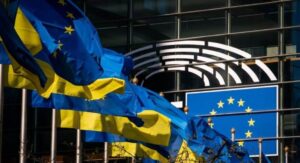
The European Commission has disbursed almost EUR 4.2 billion to Ukraine under the Ukraine Facility, bringing the total amount of EU funding allocated to the Ukrainian government under the Ukraine Facility to EUR 12 billion.
This was reported by the European Commission on Tuesday.
“Following a request for disbursement submitted by Ukraine, the Council endorsed the Commission’s assessment that Ukraine has satisfactorily implemented nine reform indicators related to the first regular quarterly payment. These conditions, covering public financial management, management of state-owned enterprises, business environment, energy and demining, were set out in the Plan for Ukraine,” the press release said.
The EC noted that today’s payment follows the initial disbursements made under the Ukraine Facility, namely €6 billion in bridge financing and €1.9 billion in pre-financing, and is evidence of the rapid implementation of the Ukraine Plan.
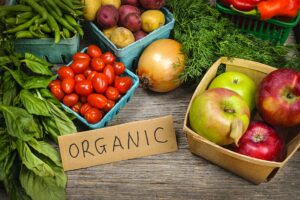
In January-June 2024, the clients of the Organic Standard certification company set a record and exported 75.34 thousand tons of organic products, which is 32.3% more than in the same period in 2023, the company’s press service reported on its Facebook page.
According to the report, Ukraine exported 56.954 million tons in the first six months of 2023, 47.863 million tons in 2022, and 32.354 million tons in 2021.
“These figures are not just statistics. They reflect the steady growth of Ukrainian organic products on international markets. Step by step, thanks to high quality and strict adherence to international standards, our customers are confidently strengthening their positions in the world,” the company said.
This result was achieved due to the consistently high quality of products, confirmed by certification according to international standards, and the growing demand for organic products, Organic Standard summarized.
Organic Standard LLC is the first Ukrainian certification body that inspects and certifies organic production. It was established in 2007 as part of the Ukrainian-Swiss project “Organic Certification and Development of the Organic Market in Ukraine”.
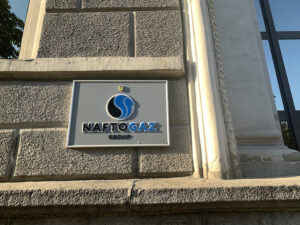
In January-July 2024, Naftogaz Group paid more than UAH 53 billion in taxes, which is almost 10% more than in the same period in 2023, the company’s website reported on Tuesday.
“The group’s enterprises promptly make tax payments to the budgets of all levels. In July alone, Naftogaz paid more than UAH 6 billion to the consolidated budget of Ukraine,” Oleksiy Chernyshov, Chairman of the Board of Naftogaz of Ukraine, was quoted as saying.
In July, UAH 5.5 billion was paid to the state budget and UAH 0.5 billion to local budgets.
As reported, in 2023, Naftogaz Group companies paid UAH 90.2 billion in taxes, UAH 83.4 billion of which went to the state budget and UAH 6.8 billion to local budgets.
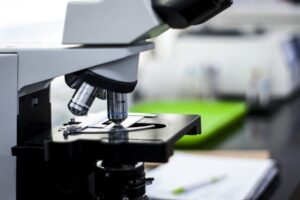
The Seed Treatment Technology Laboratory of the production complex of the international agricultural research company Corteva Agriscience has passed international round tests to determine the dust content of treated seeds (Heubach test) and received a certificate of high quality of seed protection products and seed safety for consumers and the environment, the company’s press service reports.
“Corteva Agriscience’s seed treatment allows farmers to effectively protect their crops during germination and plant formation. This is a full-fledged comprehensive protection against the risks associated with soil pests and diseases, seed diseases, as well as pests and nematodes that affect plants in the early stages of crop development, when the disease can lead to complete loss of crops,” said Stepan Derkach, Category Marketing Manager for Corteva Agriscience Seed Treatment Technologies in Ukraine.
Opened at the end of 2021, Corteva’s Seed Treatment Technology Laboratory checks the quality of application of protection products on all seeds of premium genetics of the Pioneer® brand, which the company’s seed production complex produces for farmers in Ukraine, Europe and Central Asia.
The Heubach test is a laboratory test that assesses how much dust is generated during mechanical impact, such as during transportation or sowing of seeds. Excessive dust can not only affect the quality of seeds during cultivation, but also pose risks to human health and the environment in case of poor application of treatment products.
Corteva Agriculture is a global agricultural company. It offers comprehensive solutions to maximize yields and profitability. It has more than 150 research facilities and more than 65 active ingredients in its portfolio. The company’s representative office in Ukraine includes the headquarters in Kyiv, a research center in Liubartsi village (Kyiv region) and a seed production complex in Stasi village (Poltava region).
In April 2022, the company decided to leave the Russian market due to the full-scale war against Ukraine unleashed by Russia.
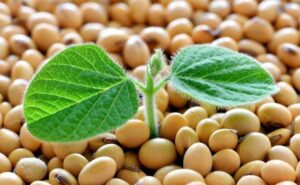
In the August report, the U.S. Department of Agriculture (USDA) raised the forecast of global oilseeds production in 2024/2025 MY by 4.5 mln tonnes to 690.5 mln tonnes due to the growth of soybean and rapeseed production, which partially offset the decline in sunflower, cotton, peanuts and palm kernel production.
Analysts increased global rapeseed production by 0.9 million tons to 88.8 million, mainly due to the expansion of rapeseed production in Russia. World sunflower production was reduced by 2.3 million tons to 52.5 million due to unfavorable weather conditions that affected yields in Ukraine, Russia, the EU, Turkey, Serbia and Moldova.
The USDA’s global soybean production in 2024/2025 is increased by 6.9 million tons to 428.7 million tons due to higher production in the US, Ukraine, Russia, India and Benin. Exports are increased by 1.0 million tons to 181.2 million due to higher exports to the US, Ukraine, Russia and Benin, partially offsetting lower shipments from Argentina. Soybean imports were increased for Egypt, the EU, Iran and Turkey. Global ending stocks of soybeans in 2024/25 MY increased by 6.5 million tons to 134.3 million, mainly due to higher stocks in China, the United States and Argentina, partially offset by lower stocks in Brazil.

In its August report, the U.S. Department of Agriculture (USDA) slightly lowered its forecast for the corn crop in Ukraine. The decrease compared to July is 1.8%, namely to 27.2 million tons (-0.5 million tons), exports – 24 million tons (-0.5 million tons), ending stocks increased to 0.73 million tons (+0.5 million tons).
World corn production is reduced to 1.219 billion tons (-0.005 billion tons), exports – to 191.47 million tons (-0.34 million tons), carry-over stocks – 310.17 million tons (-1.47 million tons).
Analysts have lowered their estimates of global corn production due to extreme heat and drought in southeastern Europe and the Southern and North Caucasus regions of Russia in July, which affected crop yields. Corn production in Ukraine was reduced, as the expansion of corn production areas was offset by lower yield expectations.